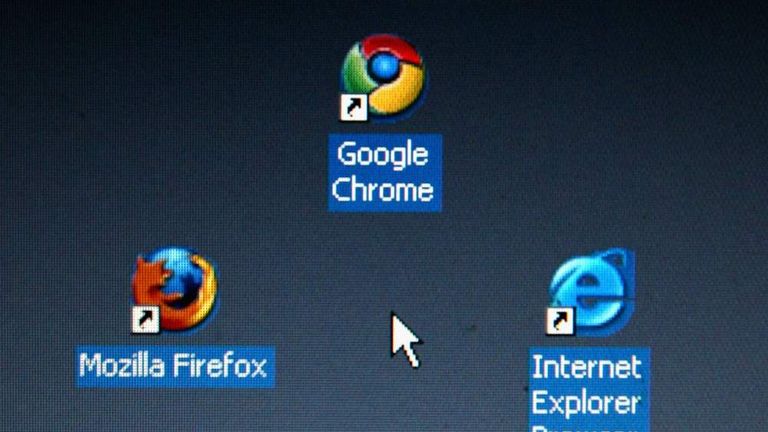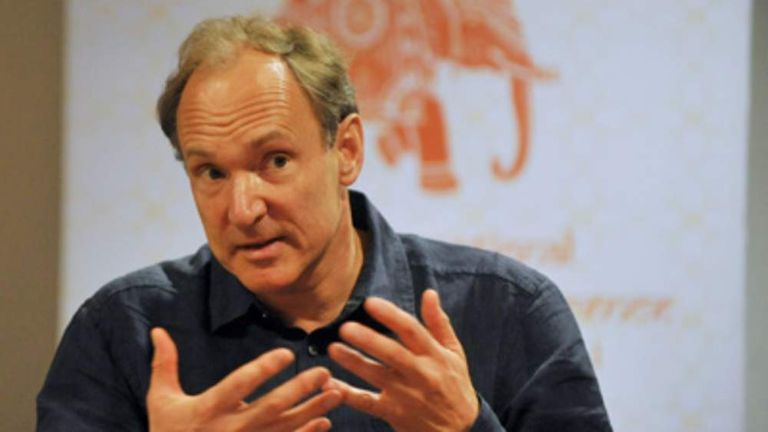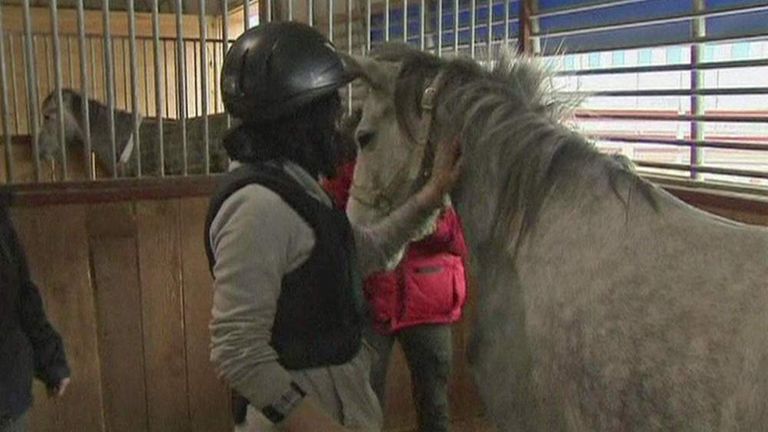World Wide Web Celebrates 25th Anniversary
It has changed the lives of millions of people around the world, and today the web marks 25 years as a publicly available service.
Saturday 6 August 2016 05:50, UK
It's the place where we can communicate without speaking, where we can meet people we might never have crossed paths with, where we can shop and bank and watch movies.
It's an easily accessible repository of mankind's knowledge. It's almost hard to believe what the World Wide Web has become in just 25 years.
It was made publicly available on the 6th August 1991 and was the vision of British physicist Tim Berners-Lee, who first came up with the idea in 1989 and successfully tested it in 1990.
Using a NeXT Computer, which can currently be seen at the Science Museum, he developed the world's first website and first web browser, as well as the mechanisms that now power the web such as URLs, HTML and HTTP.
The flow of information was so fast and so easy that within a decade the world had been transformed.
One of the key factors in that astonishing growth was the decision by CERN - and Tim Berners-Lee - to make the World Wide Web free for everyone to use and dabble with.
"Initially, what was wonderful about the web was that anyone could take information that they thought everyone in the world would be interested in and put up a website and the information would be out there," says Brad Karp, Professor of Computer Systems and Networks at University College London.
"But the problem was, how would people find that information?
"So one of the first solutions was from one of the earliest internet companies - Yahoo - where a Stanford graduate Jerry Yang and his technical collaborator David Filo, started making a human-curated list of websites.
"They just manually put together webpages that said 'if you're interested in music, here are categories of music' and within that category they would list websites about that type of music.
"And so word spread about Yahoo as a sort of directory of the web.
"Then the Digital Equipment Corporation - DEC - created a search engine called Alta Vista. There were others like Hotbot. Today we are very familiar with Google.
"What these search engines did was take all the information on the World Wide Web, pull it in to a big farm of servers and make it possible for people to type just a few words and then just search through this local copy of the entire web.
"They could find all the web pages that had those terms in them and give back to the user that list of relevant pages. And that really changed the way people used the web."
The web and the internet are not the same thing. The latter is the infrastructure that supports the web. It is the network of cables, computers, and servers. The network of networks.
The internet is widely accepted to have been invented in 1969 when a message was sent from an IBM System 360 computer at UCLA to a machine based at the Stanford Research Institute via the ARPANET, which evolved into the internet we know today.
There are now approximately 1.1bn websites on the internet and 3.4bn internet users in the world.







